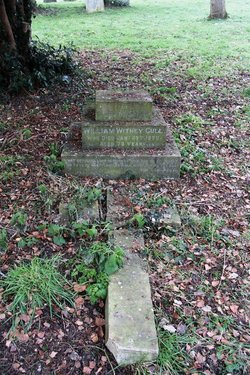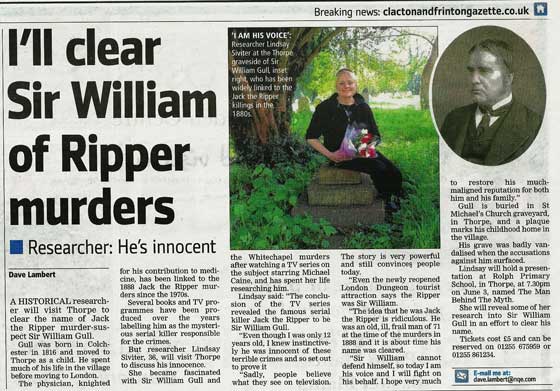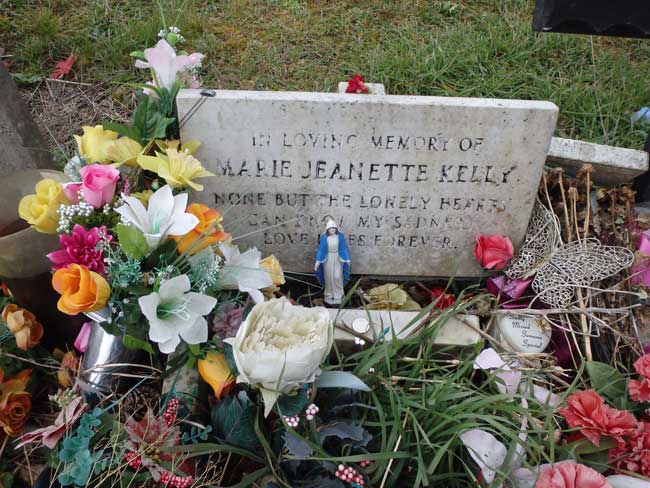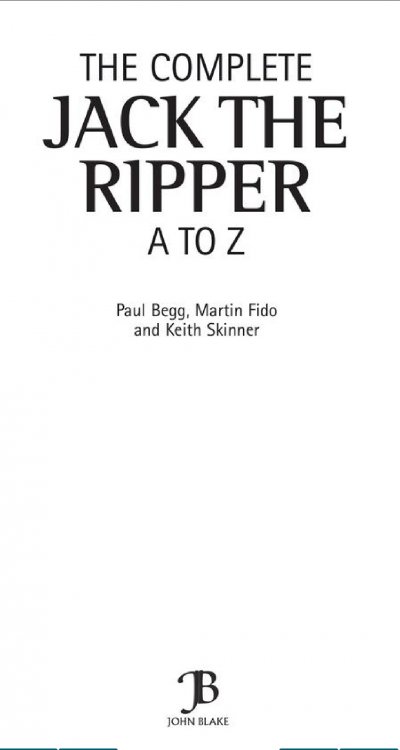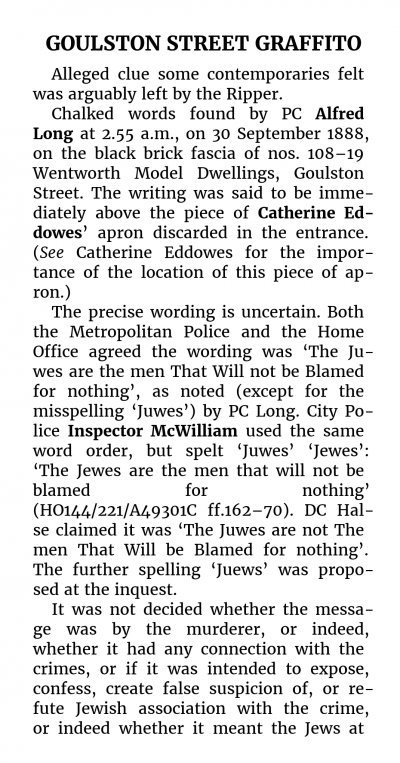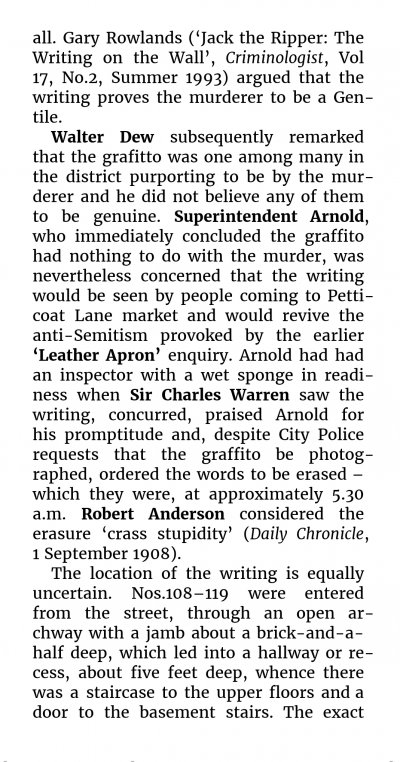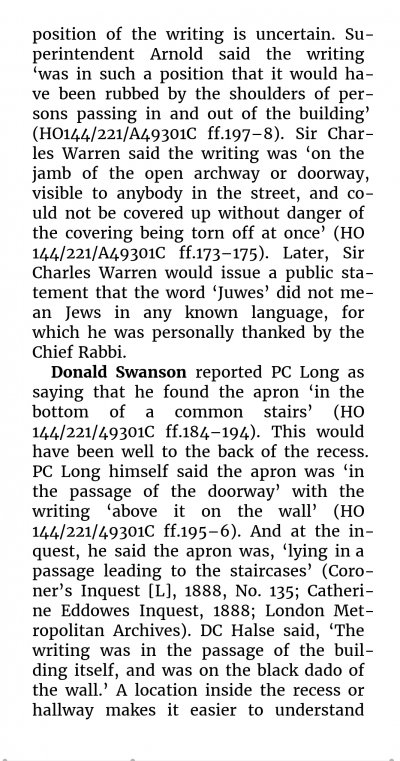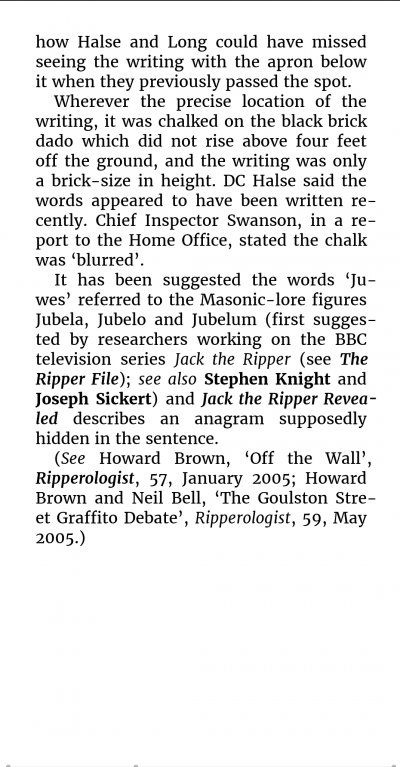Day 2, Thursday, October 11, 1888
(The Daily Telegraph, October 12, 1888, Page 2)
Yesterday [11 Oct], at the City Coroner's Court, Golden-lane, Mr. S. F. Langham resumed the inquest respecting the death of Catherine Eddowes, who was found murdered and mutilated in Mitre-square, Aldgate, early on the morning of Sunday, Sept. 30.
Mr. Crawford, City Solicitor, again watched the case on behalf of the police.
[...]
Constable Alfred Long, 254 A, Metropolitan police: I was on duty in Goulston-street, Whitechapel, on Sunday morning, Sept. 30, and about five minutes to three o'clock I found a portion of a white apron (produced). There were recent stains of blood on it. The apron was lying in the passage leading to the staircase of Nos. 106 to 119, a model dwelling-house. Above on the wall was written in chalk, "The Jews are the men that will not be blamed for nothing." I at once searched the staircase and areas of the building, but did not find anything else. I took the apron to Commercial-road Police-station and reported to the inspector on duty.
[Coroner] Had you been past that spot previously to your discovering the apron? -
I passed about twenty minutes past two o'clock.
[Coroner] Are you able to say whether the apron was there then? -
It was not.
Mr. Crawford: As to the writing on the wall, have you not put a "not" in the wrong place? Were not the words, "The Jews are not the men that will be blamed for nothing"? -
I believe the words were as I have stated.
[Coroner] Was not the word "Jews" spelt "Juwes?" -
It may have been.
[Coroner] Yet you did not tell us that in the first place. Did you make an entry of the words at the time? -
Yes, in my pocket-book. Is it possible that you have put the "not" in the wrong place? -
It is possible, but I do not think that I have.
[Coroner] Which did you notice first - the piece of apron or the writing on the wall? -
The piece of apron, one corner of which was wet with blood.
[Coroner] How came you to observe the writing on the wall? -
I saw it while trying to discover whether there were any marks of blood about.
[Coroner] Did the writing appear to have been recently done? -
I could not form an opinion.
[Coroner] Do I understand that you made a search in the model dwelling-house? -
I went into the staircases.
[Coroner] Did you not make inquiries in the house itself? -
No.
The Foreman: Where is the pocket-book in which you made the entry of the writing? -
At Westminster.
[Coroner] Is it possible to get it at once? -
I dare say.
Mr. Crawford: I will ask the coroner to direct that the book be fetched.
The Coroner: Let that be done.
Daniel Halse, detective officer, City police: On Saturday, Sept. 29, pursuant to instructions received at the central office in Old Jewry, I directed a number of police in plain clothes to patrol the streets of the City all night. At two minutes to two o'clock on the Sunday morning, when near Aldgate Church, in company with Detectives Outram and Marriott, I heard that a woman had been found murdered in Mitre-square. We ran to the spot, and I at once gave instructions for the neighbourhood to be searched and every man stopped and examined. I myself went by way of Middlesex-street into Wentworth-street, where I stopped two men, who, however, gave a satisfactory account of themselves. I came through Goulston-street about twenty minutes past two, and then returned to Mitre-square, subsequently going to the mortuary. I saw the deceased, and noticed that a portion of her apron was missing. I accompanied Major Smith back to Mitre-square, when we heard that a piece of apron had been found in Goulston-street. After visiting Leman-street police-station, I proceeded to Goulston-street, where I saw some chalk-writing on the black facia of the wall. Instructions were given to have the writing photographed, but before it could be done the Metropolitan police stated that they thought the writing might cause a riot or outbreak against the Jews, and it was decided to have it rubbed out, as the people were already bringing out their stalls into the street. When Detective Hunt returned inquiry was made at every door of every tenement of the model dwelling-house, but we gained no tidings of any one who was likely to have been the murderer.
By Mr. Crawford: At twenty minutes past two o'clock I passed over the spot where the piece of apron was found, but did not notice anything then. I should not necessarily have seen the piece of apron.
[Coroner] As to the writing on the wall, did you hear anybody suggest that the word "Jews" should be rubbed out and the other words left? -
I did. The fear on the part of the Metropolitan police that the writing might cause riot was the sole reason why it was rubbed out. I took a copy of it, and what I wrote down was as follows: "The Juwes are not the men who will be blamed for nothing."
[Coroner] Did the writing have the appearance of having been recently done? -
Yes. It was written with white chalk on a black facia.
The Foreman: Why was the writing really rubbed out? -
Witness: The Metropolitan police said it might create a riot, and it was their ground.
Mr. Crawford: I am obliged to ask this question. Did you protest against the writing being rubbed out? -
Witness: I did. I asked that it might, at all events, be allowed to remain until Major Smith had seen it. Why do you say that it seemed to have been recently written? -
It looked fresh, and if it had been done long before it would have been rubbed out by the people passing. I did not notice whether there was any powdered chalk on the ground, though I did look about to see if a knife could be found. There were three lines of writing in a good schoolboy's round hand. The size of the capital letters would be about 3/4 in, and the other letters were in proportion. The writing was on the black bricks, which formed a kind of dado, the bricks above being white.
Mr. Crawford: With the exception of a few questions to Long, the Metropolitan constable, that is the whole of the evidence I have to offer at the present moment on the part of the City police. But if any point occurs to the coroner or the jury I shall be happy to endeavour to have it cleared up.
A Juror: It seems surprising that a policeman should have found the piece of apron in the passage of the buildings, and yet made no inquiries in the buildings themselves. There was a clue up to that point, and then it was altogether lost.
Mr. Crawford: As to the premises being searched, I have in court members of the City police who did make diligent search in every part of the tenements the moment the matter came to their knowledge. But unfortunately it did not come to their knowledge until two hours after. There was thus delay, and the man who discovered the piece of apron is a member of the Metropolitan police.
A Juror: It is the man belonging to the Metropolitan police that I am complaining of.
At this point Constable Long returned, and produced the pocket-book containing the entry which he made at the time concerning the discovery of the writing on the wall.
Mr. Crawford: What is the entry? -
Witness: The words are, "The Jews are the men that will not be blamed for nothing."
[Coroner] Both here and in your inspector's report the word "Jews" is spelt correctly? -
Yes; but the inspector remarked that the word was spelt "Juwes."
[Coroner] Why did you write "Jews" then? -
I made my entry before the inspector made the remark.
[Coroner] But why did the inspector write "Jews"? -
I cannot say.
[Coroner] At all events, there is a discrepancy? -
It would seem so.
[Coroner] What did you do when you found the piece of apron? -
I at once searched the staircases leading to the buildings.
[Coroner] Did you make inquiry in any of the tenements of the buildings? -
No.
[Coroner] How many staircases are there? -
Six or seven.
[Coroner] And you searched every staircase? -
Every staircase to the top.
[Coroner] You found no trace of blood or of recent footmarks? -
No.
[Coroner] About what time was that? -
Three o'clock.
[Coroner] Having examined the staircases, what did you next do? -
I proceeded to the station.
[Coroner] Before going did you hear that a murder had been committed? -
Yes. It is common knowledge that two murders have been perpetrated.
[Coroner] Which did you hear of? -
I heard of the murder in the City. There were rumours of another, but not certain.
[Coroner] When you went away did you leave anybody in charge? -
Yes; the constable on the next beat - 190, H Division - but I do not know his name.
[Coroner] Did you give him instructions as to what he was to do? -
I told him to keep observation on the dwelling house, and see if any one entered or left.
[Coroner] When did you return? -
About five o'clock.
[Coroner] Had the writing been rubbed out then? -
No; it was rubbed out in my presence at half-past five.
[Coroner] Did you hear any one object to its being rubbed out? -
No. It was nearly daylight when it was rubbed out.
A Juror: Having examined the apron and the writing, did it not occur to you that it would be wise to search the dwelling? -
I did what I thought was right under the circumstances.
The Juror: I do not wish to say anything to reflect upon you, because I consider that altogether the evidence of the police redounds to their credit; but it does seem strange that this clue was not followed up.
Witness: I thought the best thing to do was to proceed to the station and report to the inspector on duty.
The Juror: I am sure you did what you deemed best.
Mr. Crawford: I suppose you thought it more likely to find the body there than the murderer?
Witness: Yes, and I felt that the inspector would be better able to deal with the matter than I was.
The Foreman: Was there any possibility of a stranger escaping from the house? -
Not from the front.
[Coroner] Did you not know about the back? -
No, that was the first time I had been on duty there.
Source:
https://www.casebook.org/official_documents/inquests/inquest_eddowes.html


